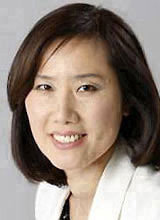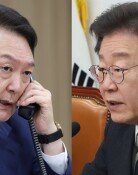‘Don't mend the barn after the horse is stolen’
‘Don't mend the barn after the horse is stolen’
Posted June. 29, 2020 07:54,
Updated June. 29, 2020 07:54


“I am writing this letter to tell you some words I could not say during the silence protest. I am the mother of two children. One is attending a general middle school and the other is going to an international middle school.”
Introducing herself as a mother of a student at Young Hoon International Middle School, the parent sent The Dong-A Ilbo a letter as long as seven A4 sheets on Friday, in the middle of a silence protest that parents had continued with since the Seoul Metropolitan Office of Education revoked the special status of Young Hoon International Middle School and Daewon International Middle School.
Her letter begins as follows. “I do not have any intention to compare general and international schools to mean that the former is inferior to the latter. Please keep in mind that one of my kids attends a public middle school. I am writing to you to say some words because I wish to see the Korean educational system develop and improve based on mutual prosperity.” To sum up, the parent shares her view of how international middle schools really do. Do they really require their students to engage in costly private tutoring classes before entering the school? And do they study exclusively for college entrance exams in an English-immersive environment, just as Seoul Metropolitan Education Office Superintendent Cho Hee-yeon criticized during his announcement of the cancellation results? The parent in the letter regrets that Superintendent Cho described international middle schools as the main culprit behind "education only for the privileged” and "competition-focused schooling.”
According to the parent's letter, here is how international middle schools work. Students do various PE activities and learn to play an instrument. Five classes including science, history and international affairs are taken in English, which allows students to take English not as a foreign language to learn and practice but as a medium to acquire knowledge. Students at international middle schools are less likely to depend on cram schools to get a good GPA than their counterparts at general schools as there is a difference in how the two types of schools teach their students during classes. Every weekend is dedicated to preparations for performance assessments on speeches and discussions. The mother in the letter stresses that international middle schools practice the intrinsic value of education.
The purpose of her sending the letter is to express her worries and concerns on educational authorities that only squash and deny hard work that comes out of free will by denouncing competition as evil, the mother said She plans to keep participating in protests out of worry about the country's educational system although her child will get an international middle school diploma.
"What is the definition of genuine education?” The mother ends her letter with a question to Superintendent Cho. She points out that it is not the right step to take on the educational path to make general middle schools feel inferior and cause conflict and insecurity among their students by misleading them into believing that they are being discriminated against, rather than improving public education as a whole to the level of international middle schools.
School-age parents claim that it is absolute nonsense that Superintendent Cho criticizes international middle schools as privileged schools exclusive to only the few and attempts to revamp assessment criteria given that his two sons graduated foreign language schools, one of which went to law school at Seoul National University. School-age parents argue that educational authorities should find ways to apply quality systems of international middle schools to the rest schools for the sake of mutual prosperity. A group of parents with international middle school students plan to continue on protests by July 13.
Su-Yeon Kim sykim@donga.com







